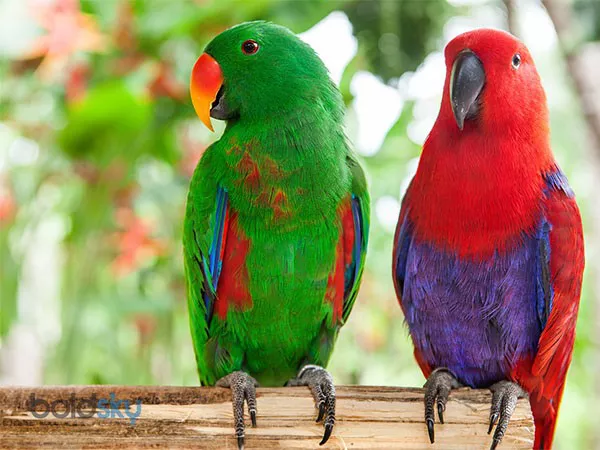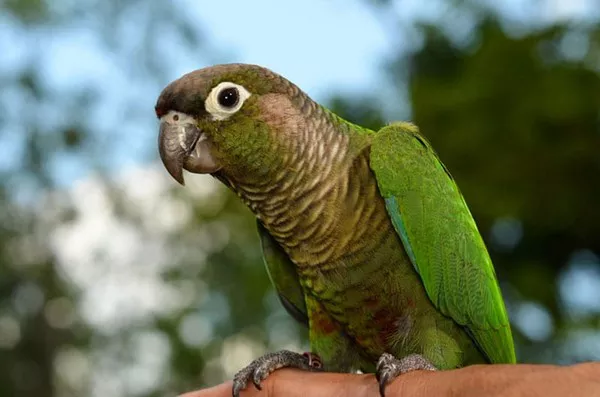Tortoises are fascinating creatures with their slow-moving, long-living, and gentle nature. These reptiles belong to the family Testudinidae and are known for their distinctive hard shells and slow pace. While tortoises are primarily herbivores, they do require a well-rounded and balanced diet for optimal health. As a result, understanding what types of foods are safe and beneficial for them is crucial for any tortoise owner. One of the common questions tortoise keepers ask is whether tortoises can eat blueberries. Blueberries, often regarded as a healthy superfood for humans, are a popular fruit in many households, but are they safe for tortoises? This article will dive into the nutritional aspects of blueberries and explore how they fit into a tortoise’s diet.
1. Tortoises and Their Diet: A General Overview
Before we get into the specifics of blueberries, it’s important to understand the general dietary needs of tortoises. Unlike carnivorous reptiles, tortoises are herbivores, and their diet mainly consists of:
Grasses: Most tortoises eat a variety of grasses, which are a rich source of fiber.
Weeds: Dandelions, clover, and plantain are some examples of safe weeds that are common in a tortoise’s diet.
Leafy greens: Romaine lettuce, collard greens, and kale provide essential nutrients.
Flowers: Many tortoises enjoy edible flowers such as hibiscus, dandelions, and pansies.
Vegetables: Leafy vegetables like carrots, zucchini, and bell peppers are often included in their meals.
Tortoises are opportunistic eaters, meaning they will consume a variety of plant material that is available to them. However, it’s important to note that tortoises don’t consume fruit in the wild as frequently as they eat grasses and greens. Fruits are generally considered a treat for tortoises and should be offered in moderation. The high sugar content in many fruits makes them unsuitable for a primary food source, but they can provide additional vitamins and minerals when given occasionally.
2. Blueberries: A Nutritious Fruit
Blueberries are a popular fruit that grows on bushes and is well-known for its high antioxidant content. They are low in calories but rich in important vitamins such as vitamin C, vitamin K, and a variety of minerals like manganese. Blueberries are also packed with antioxidants, including anthocyanins, which are compounds known to have anti-inflammatory properties and promote overall health in humans. This has led many to consider blueberries as a “superfood.”
Here’s a breakdown of the nutritional profile of blueberries per 100 grams:
- Calories: 57 kcal
- Carbohydrates: 14.5 grams
- Fiber: 2.4 grams
- Sugars: 9.7 grams
- Vitamin C: 9.7 mg (about 16% of the daily recommended intake)
- Vitamin K: 19.3 mcg
- Manganese: 0.3 mg
Given their relatively low calorie and sugar content compared to other fruits, blueberries are often viewed as a healthy option for people, but this doesn’t necessarily mean they are equally beneficial or suitable for tortoises.
3. Can Tortoises Eat Blueberries?
Now, let’s address the key question: Can tortoises eat blueberries? The short answer is yes, tortoises can eat blueberries, but only in moderation. While blueberries are not toxic to tortoises, they are high in sugars, which is something tortoises do not typically encounter in large amounts in their natural diets. Therefore, while an occasional blueberry can be a healthy treat, it should not become a staple food.
Let’s look at some specific reasons why blueberries should be fed carefully:
Sugar Content
One of the primary concerns when feeding blueberries to tortoises is their high sugar content. Tortoises do not have the same metabolic processes as humans when it comes to processing sugars. Overfeeding sugary fruits can lead to health issues such as obesity, gastrointestinal problems, or even diabetes in tortoises. In the wild, tortoises usually have access to low-sugar plant material, with fruits being a small portion of their diet, usually consumed in season or when available in limited quantities.
Nutrient Imbalance
Although blueberries are rich in certain vitamins and antioxidants, they do not provide the full spectrum of nutrients that tortoises require for a balanced diet. For example, while blueberries contain some vitamin C, tortoises typically get the bulk of their vitamin C from leafy greens, grasses, and other vegetables. A diet too heavy in fruit could result in nutrient imbalances, especially if it leads to a reduction in the intake of more nutrient-dense foods like leafy vegetables and grasses.
Digestive Health
Tortoises are primarily grazers, and their digestive systems are adapted to process fibrous plant material. High-sugar fruits like blueberries do not provide the same fiber content as grasses and leafy greens. If offered too frequently, fruits like blueberries could disrupt the digestive process, leading to diarrhea or other gastrointestinal issues. A balanced diet that prioritizes fiber-rich foods is essential for maintaining proper digestion in tortoises.
4. Are All Tortoise Species the Same When It Comes to Blueberries?
While most tortoises are herbivores, not all species have the same dietary preferences or tolerances. There are many different species of tortoises, and each has its own dietary needs. For example:
Greek Tortoises: These tortoises primarily eat grasses and weeds and should be given fruit like blueberries sparingly.
Sulcata Tortoises: Known for their large size, these tortoises are also primarily grass eaters. They can eat fruit occasionally, but their diet should mainly consist of hay and grasses.
Russian Tortoises: These smaller tortoises do well with a diet of leafy greens and grasses, with only small amounts of fruit like blueberries given as a treat.
Some species may be more tolerant of fruit than others, but even for species that can eat fruit occasionally, blueberries should still be offered in moderation. Offering a wide variety of safe plants, weeds, and grasses is the key to keeping any tortoise healthy.
5. How Often Should You Feed Blueberries to Your Tortoise?
As previously mentioned, blueberries should only be given as an occasional treat, not a regular part of your tortoise’s diet. A good rule of thumb is to offer blueberries no more than once a week, and in small amounts. A single blueberry or two is usually enough for most tortoises. Overfeeding fruits like blueberries, especially on a daily basis, could disrupt the balance of their diet and lead to long-term health problems.
If you decide to feed blueberries, make sure to wash them thoroughly to remove any pesticides or chemicals. Organic blueberries are the safest option if they are available.
6. Signs of Overfeeding Fruits to Tortoises
It’s important to keep an eye on your tortoise after offering them fruits like blueberries to ensure they don’t develop digestive issues. Some signs that you might be overfeeding your tortoise with fruit include:
Diarrhea: This is one of the most common signs that your tortoise’s diet is too rich in sugars.
Weight Gain: Excessive fruit intake, especially high-sugar fruits, can lead to obesity over time.
Lethargy: An unbalanced diet can affect a tortoise’s energy levels, causing them to become sluggish or less active.
Loss of Appetite: If your tortoise refuses to eat their normal food (like grasses or leafy greens), it might be due to an imbalance caused by too many fruits.
7. Healthy Alternatives to Blueberries for Tortoises
If you’re looking to give your tortoise a fruit treat, there are other options that are lower in sugar and safer for them to consume more frequently. Here are some healthy alternatives:
Strawberries: A small, occasional treat, strawberries are lower in sugar compared to blueberries and provide some vitamin C.
Raspberries: Another berry that tortoises can eat, raspberries are similarly low in sugar but high in fiber.
Melon: Cantaloupe or watermelon in small amounts can provide hydration and variety in your tortoise’s diet.
Papaya: This tropical fruit is rich in vitamin C and can be fed sparingly.
Peaches: Like other fruits, peaches should only be offered occasionally due to their sugar content.
However, remember that the base of a tortoise’s diet should always consist of leafy greens, grasses, and safe weeds. Fruits, including blueberries, should never make up more than 10-15% of their total food intake.
Conclusion
In summary, tortoises can eat blueberries, but they should be considered an occasional treat rather than a regular part of their diet. The high sugar content in blueberries can be problematic if fed too often, and overconsumption of fruit can lead to health issues such as obesity and digestive problems. A tortoise’s primary diet should consist of high-fiber grasses, leafy greens, and safe plants that mimic what they would eat in the wild. By offering blueberries in moderation, along with a balanced diet, you can ensure your tortoise remains healthy and happy for years to come.
When introducing any new food to your tortoise’s diet, it’s always important to observe their reaction and ensure they don’t experience any digestive upset. Consult with a veterinarian who specializes in reptiles if you are ever unsure about the foods you’re offering.
By being mindful of what your tortoise consumes, you can help them live a long and healthy life, enjoying the occasional blueberry treat as part of a well-balanced diet!
Related Topics:




















